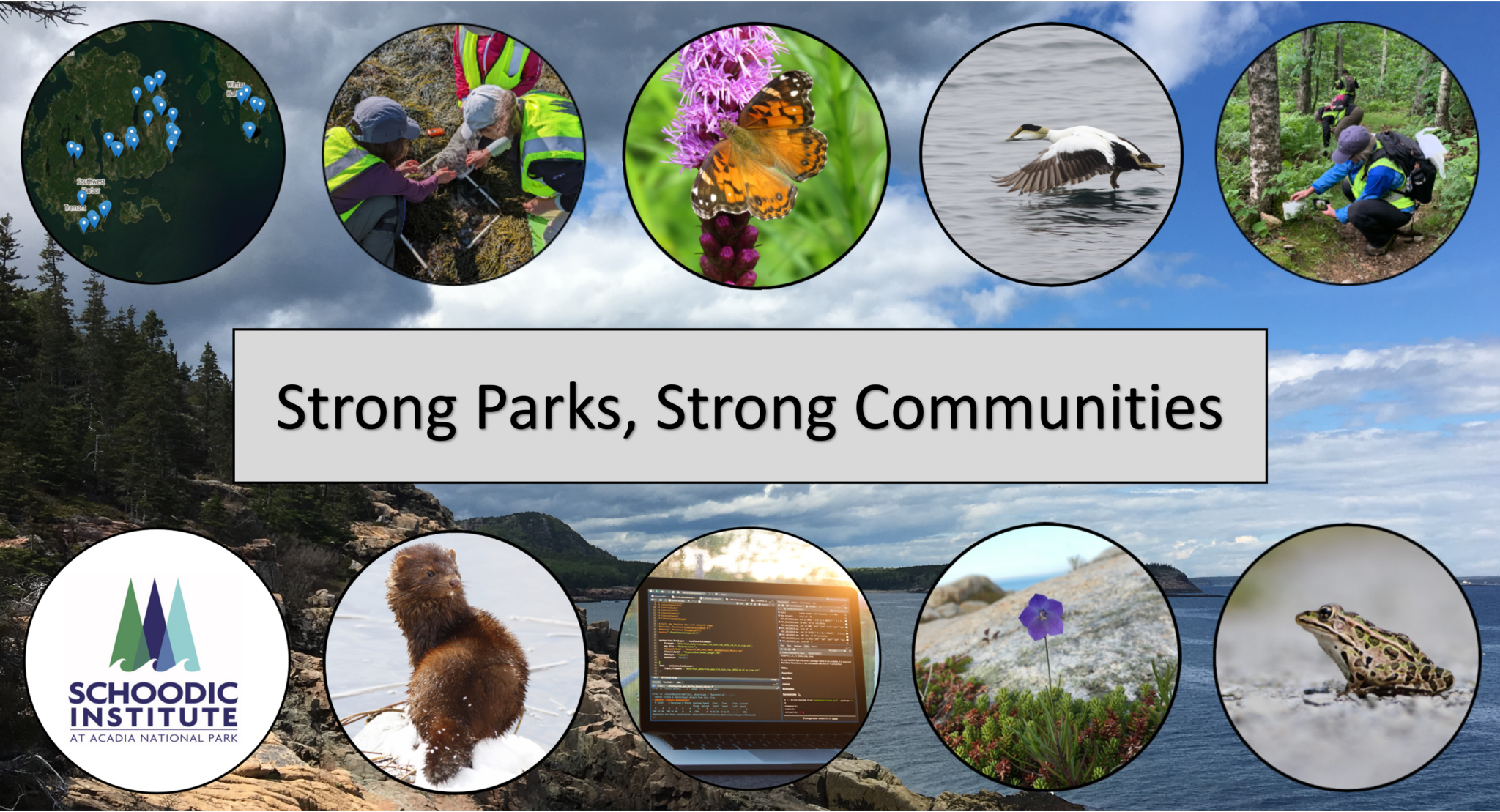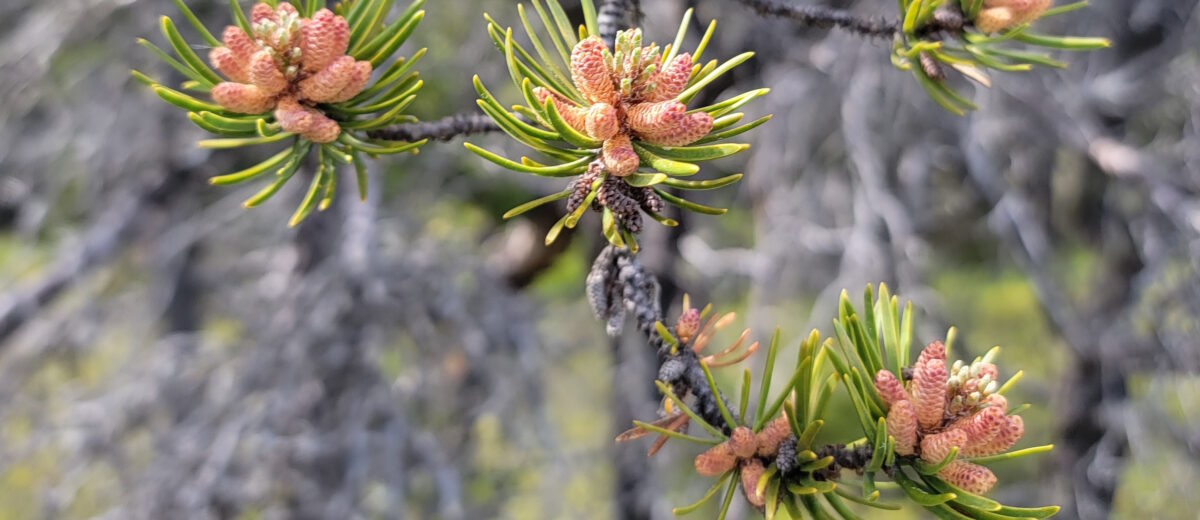by Kyle Lima
Schoodic Institute is creating a new way to analyze and visualize citizen science data on biological diversity in both Acadia National Park and Katahdin Woods and Waters National Monument.
Citizen scientists, staff, and volunteers have collected an abundance of data on plants, animals, and fungi in national parks. The volume is staggering. On iNaturalist alone, there are more than 2,300,000 records of species inside national park boundaries. Keeping up with these data is a challenge for park managers, and park visitors don’t always know the impact of their citizen science efforts.
We have started a new project to move citizen science data from being “hidden on a back shelf” to being applied to urgent resource management issues and shared with the public.
Supported by a $35,000 grant from the National Park Foundation, we will assess biodiversity observations in Acadia National Park and Katahdin Woods and Waters National Monument, build an open-source citizen science analysis workflow that will be transferable across the National Park System, and communicate our findings to park visitors.
The grant includes support for data analysis and science communication, and equipment to display the final product in visitor centers, including the Acadia National Park Welcome Center at Rockefeller Hall. New displays will show which species are being observed in Acadia and Katahdin Woods and Waters in real time, and encourage participation in our citizen science efforts. Once developed, the tool will be available for use by other national parks and partner organizations.
Schoodic Institute is one of 41 park partner organizations receiving more than $1.7 million in new funding as part of the National Park Foundation’s Strong Parks, Strong Communities program to cultivate and expand national park philanthropy working in partnership with the National Park Service, and Friends Alliance. View the full list of 2022 Strong Parks, Strong Communities Capacity Building grantees here.

